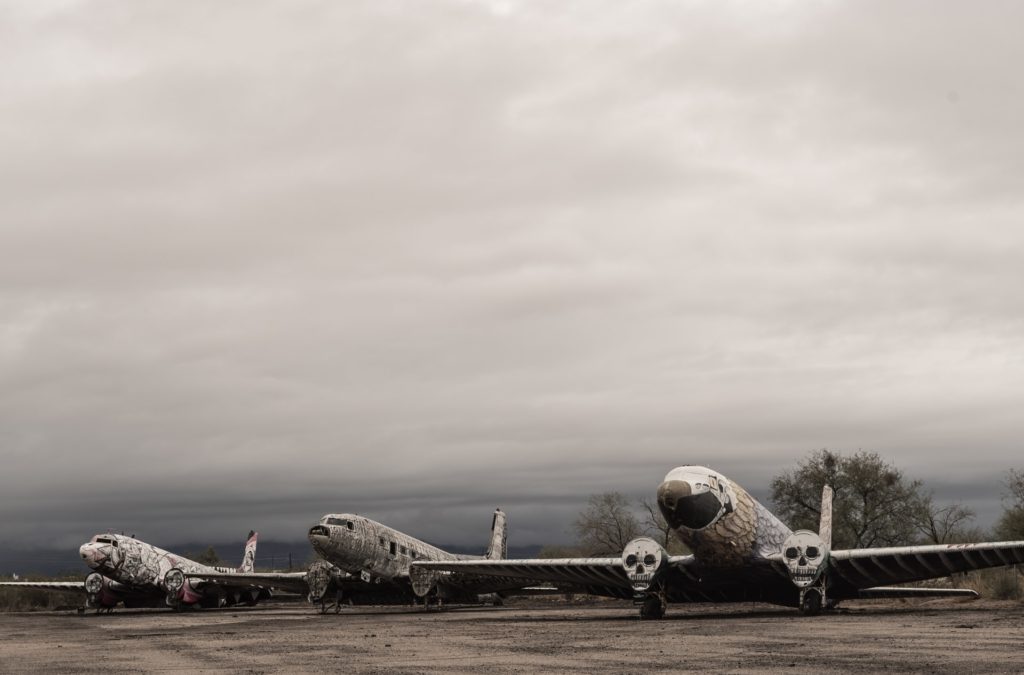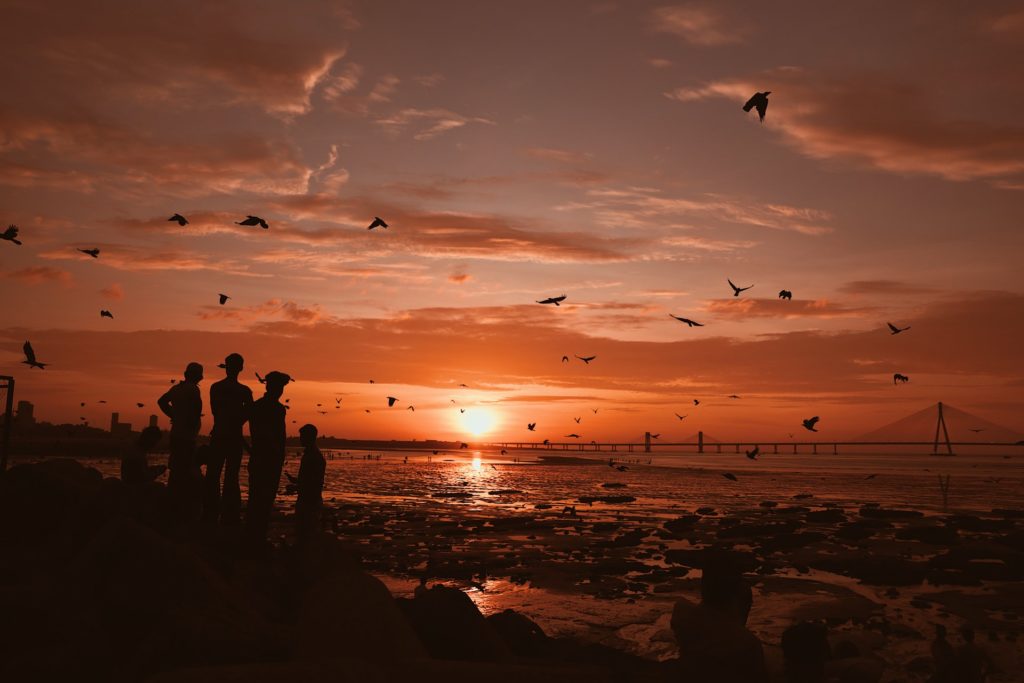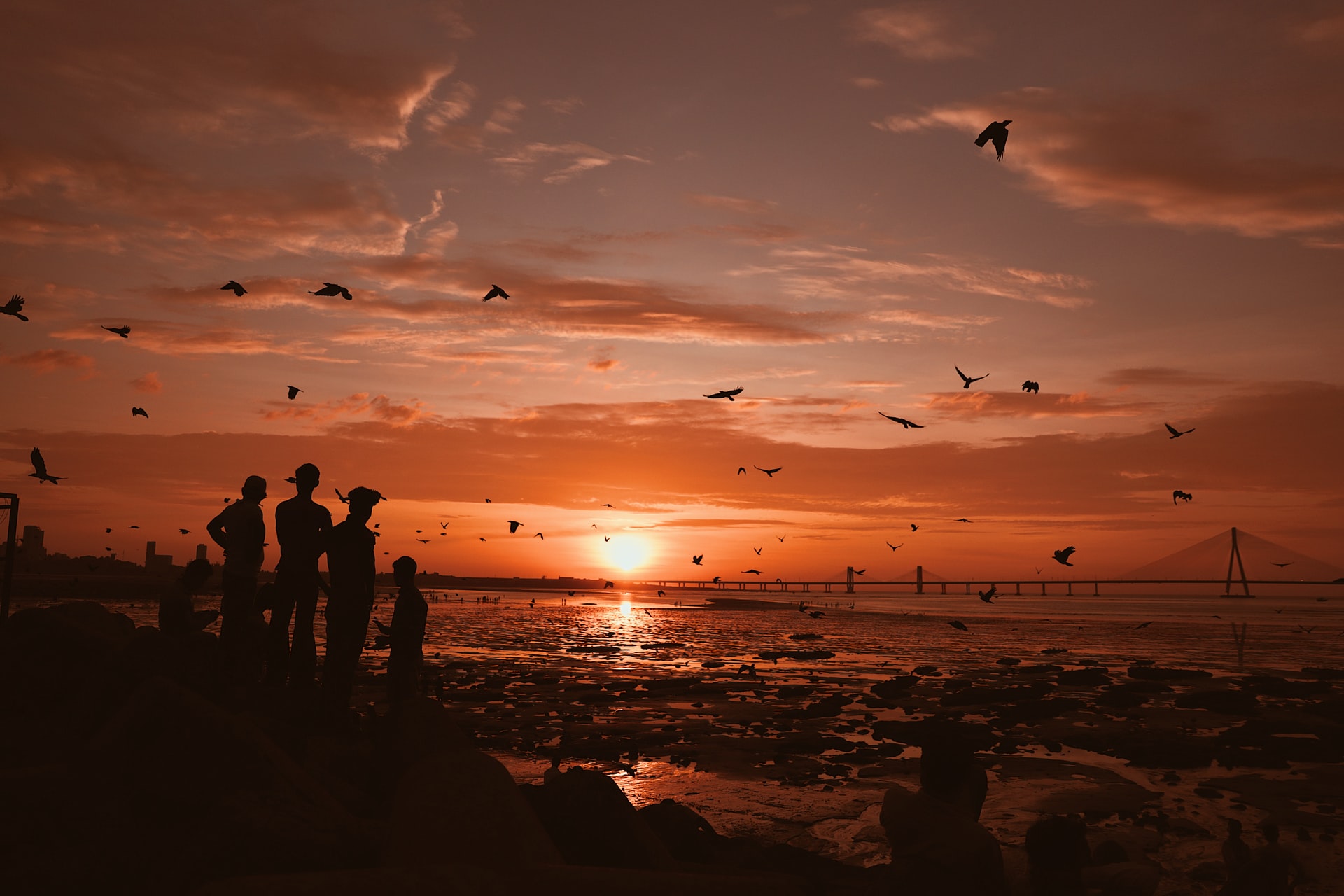It’s now been over a year since I was last inside an aeroplane. This doesn’t feel like a major milestone at all. Which may have something to do with the fact that most people can’t go inside an aeroplane at the moment either. But I’m writing this post as an act of celebration. Because my flight-free year was an active choice. A choice I’m anything but ashamed of. Flygskam be damned!
Flygskam: pronunciation, definition, translation
You may have heard of a certain buzzword doing the rounds: flygskam. It’s a Swedish word (pronounced fleegh-scamm) that’s often translated as ‘flight-shame’. Not that there’s any real doubt about what it means. But translation can be problematic. Take the Danish word hygge. Something ephemeral gets lost in the English approximation of ‘coziness’.
The same may be true for flygskam. That could be because the specific type of shame alluded to is Swedish in origin. I don’t mean in the way that an IKEA shelf or Stefan Edberg is Swedish in origin. But does shame operate in a peculiar way in Sweden? What does flygskam means to a Swede? And does that matter? As Mette Kahlin Mcveigh points out:
. . . it is not just Swedes who feel guilty about their carbon footprints: the Finnish have invented lentohapea, the Dutch say vliegschaamte, and the Germans use flugscham.
—Mette Kahlin Mcveigh, foreword to Beyond Flygskam
Staffan Lindberg may have coined (paywalled and in Swedish) the term flygskam in 2017. Greta Thunberg has also used the term as part of her worldwide school strike for climate. Last year flygskam began to attract attention in the usual English-language news outlets. In fact, a simple web search returns thousands of articles on the subject. But few interrogate the ‘Swedishness’ of flight shame.
So, as I’m also Swedish—yes, hard to imagine, but true—I figure it’s okay if I try to put into words what flygskam means to me. This may be more useful than arguing about the environmental impacts of air travel. And less stressful than doing so in online, below-the-line forums. Not that I’ve had time to do either of those things now that I’m living in a Zen, post-flygskam paradigm.
The pre-flygskam paradigm: business as usual
This is the part where I run the risk of coming across as either a climate evangelist or a clueless carbon hog. Or both. I’m quite capable of seeing the contradictions in what I’m about to tell you. They no doubt sound familiar to anyone who’s spent a lot of time in crowded departure lounges. Or standing in long security screening queues. Or waiting at baggage carousels.
The thing is, the pre-flygskam me liked to think that the act of flying was a time saver and a great convenience. And in some ways, that’s quite true. It goes without saying that Stockholm–Sydney is a journey that’s quicker by plane. But a whole bunch of other things about that journey tend to go unsaid, too. And if you’ve ever flown, I have no doubt that you know what they are.
The stress of packing. The night without sleep because you were afraid you might not hear your alarm. The one, two, three or five-hours spent getting to the airport. The queue to check in your luggage. The even longer queues in the security screening area. The guard rummaging through your hand luggage. The abomination that is the only route through a duty-free shop.
That’s on a good day. On a bad day you can add the flight delayed by a ‘weather event’, or an ‘engine malfunction’ (never good). The departure time you misread because you were in too much of a hurry. Then the sprint to passport control. The mind-numbing idiocy of passport checks. Arriving at the gate, drenched in sweat. Yet another delayed flight. Your child who defecates at the gate.
Do I sound like I’m whining? Trust me, I’m only getting warmed up. We haven’t even stepped into the plane yet. My point is that I used to think of all this as business as usual. But there’s a problem with that kind of thinking. It discounts or ignores the amount of thinking it takes to get yourself onto that plane. The effort required to not think about how crap it all is.
Interrogating the in-flight ‘experience’
Because the in-flight experience is garbage. If you’re tall, you’ll do things to your legs even a gymnast wouldn’t try. If you’re short, or small, you’ll end up surrounded by extra-tall people who’ll take your space. And if your bum happens to be even one inch wider than the width of the seat, well, good luck with that. Don’t even get me started on hand luggage or overhead bins.
Cramming humans into miniature ‘seats’ is an extension of the business-as-usual approach. It’s another one of those things that go without saying. Which means it still needs saying. Otherwise, why are we even here? What’s the upside of this ‘experience’? The time savings? What is your time even worth? Do you have a personal daily rate, based on your own inherent value?
That coprolitic—but complimentary!—coffee served up by your cheerful cabin attendant? It is not worth your precious time. That in-flight magazine? An advertising fatberg only redeemed by its lack of activity trackers. That plastic-wrapped ‘cookie’ you munched while gazing at the landscape thirty-thousand feet below? Is this what you paid for? Are you enjoying your flight yet?
I’m yet to see the logical end-game of the budget airline philosophy but it can’t be far off. A fuselage interior stripped of all artifice, including seats, overhead bins and toilets. Passengers wearing parachutes, strapped to the walls, watched over by defence force personnel. I’m not sure if it is possible to remove all oxygen from the fuselage, but it would be worth a shot.
In this scenario, there would no longer be any need for the traditional captain’s address. Flight times, atmospheric conditions—irrelevant. Get me to my destination. Make it quick and cheap. Well, you wanted it; you got it. Now, leap out via a side door into the radiant atmosphere, somewhere over central London. Hope to see you again. Thanks for flying with us.

The unseen power of guilt and shame
Here’s another thing that often goes without saying. Shame is a powerful and damaging emotion. Pretty much everyone experiences it at some stage. Quite a few of us also manage to spend a fair bit of time shaming other people during our all-too-brief lifespans. Yeah, shaming is a thing, all right. Flight shaming. Parent shaming. Online shaming. Fat shaming.
When parents travel with babies on planes, this can provoke the first two types of shaming. If that shaming occurs in an online forum, you might call that the shaming trifecta. And if either or both parents’ bums are too big to fit in the Economy Class seats, well, you’ve come away with the quinella. Go you. Recline that seat of yours as far as you can. We’ll be here all night. Screaming.
The thing is, I didn’t feel ashamed about flying at all until I had children. Which seems odd, in hindsight. Because I’d spent the previous decade burning through my lifetime personal carbon allocation. And the allocations of quite a few other people who had not yet had an opportunity to step onto an aeroplane. I didn’t feel bad about it at the time. I like to tell myself I had no idea.
But stepping from the jetway and into a plane with a baby for the first time was a whole new experience. It felt like I was holding a miniature foghorn with no silent mode. Sure, much of the shame I felt was imaginary, or self-inflicted. Why had I even agreed to have this baby in the first place? But as I continued to travel in planes, with one and then two children, that shit started to get real.
Passengers with infants on long-haul flights are already at a disadvantage. They cannot choose where to sit; the airline allocates their seats for them. In this high-pressure environment, shame is only centimetres away at any given time. Those pensioners who thought they were getting a good seat with extra legroom? Oh no, they’re sitting next to a baby. Why weren’t they warned?
It’s the dirty looks. The rolling eyes. Do they have to sit here? The drunk concern-troll ‘congratulating’ you after a 14-hour flight sans screaming. Feel free to foul up the cabin with your complimentary alcohol, mouth-breather! Meanwhile we’re flat out making sure a miniature person doesn’t spoil your ‘journey’. No, don’t thank me. Congratulate me instead. Thank you for flying with us.
Interrogating shame, parenthood and personal responsibility
This is the sort of shame that once made me feel glad about my own decision to stop flying. At the time, that decision had everything to do with feelings of guilt and shame. Guilt that I was contributing to an environmental catastrophe. Shame that I was implicating my children in it. And a dirty combo of guilty shame about having kids at all. I myself was to blame. For everything.
At first, this made it quite easy to honour my commitment to a flight-free year. I consulted online carbon calculators and managed to survive a long train trip. I delved into the train-based travel writings of Paul Theroux. But then my guilt and shame began to wane. In their place, anger and frustration emerged. Two emotions which, if not resolved, can lead to a form of depression.
My anger and frustration stemmed from many issues. Only one of these was the supreme selfishness of my airline travel. But I began to feel that my guilt and shame may not have been necessary or useful at all. Did my emotions lead me to make that decision for the wrong reasons? Why beat myself up about my past actions, when I’d already made a decision to act in a different way?
To be clear: I’ve chosen to have children and to reduce my reliance on air travel. I’m still grappling with the contradictory dynamics of such a choice. Because one aspect of parent shaming is the argument that having kids is bad for the environment. And that it’s much worse than anything else you might ‘do’. In this context, choosing not to travel in aeroplanes becomes irrelevant.
So, what am I trying to say? That I don’t need to feel bad about my personal choices? That merely attempting to justify my own actions absolves me of responsibility? That the world isn’t overpopulated? That there is no climate emergency? That I’m all right Jack, and get off my lawn? Oh, and by the way, screw everybody who doesn’t think the same way as me on any issue?
Well, if you’ve read this far, you’ve also (I hope) realised that I’m not saying any of those things. What I’m saying is that complex notions of shame and guilt have affected a lot of what I do. Not to mention my feelings about a lot of what I cannot undo. I’m not going to continue making personal decisions based on guilt. But to own these decisions I first need to destroy my shame.

Flygskam be damned: celebrating a flight-free life
At the beginning of this post I wondered how shame operates in Sweden. I don’t know enough to generalise but I suspect it operates the same here as it does everywhere else. Someone does or says something (or else exists). Someone else responds to that. They don’t like it. They want that first person to know that. Then the first person feels bad. This creates shame, which then circulates.
I’m simplifying, of course. But one could see this process in action on the aningslösa influencers Instagram account. The account (now inactive) called out ‘clueless’ celebrities for their flight emissions. This, of course, generated debate within the Swedish media about the power of shame. In other words, about shame’s usefulness when it comes to changing behaviour.
A lot of this power, as far as I can see, is imaginary. We hold celebrities to standards we’d never apply to ourselves. And celebrities, in turn, use that freedom in bizarre ways. Thus demonstrating how little attention we should be paying to them in the first place. But we humans are strange beasts. We’ll shame anyone as long as we don’t need to interrogate ourselves.
I don’t want to make anyone feel good or bad about the decisions I’ve made in my life. I also don’t appreciate anyone attempting to make me feel bad, based on their own decisions. But shame is such an insidious emotion. Even when people try to make me feel good about myself I’m often unsure whether I should believe them. But there’s an easy way out of that miserable labyrinth.
I’m looking forward to celebrating my flight-free year. I’ll do so in a way that’s appropriate to the scale of the achievement. I plan on not thinking about airlines and flying at all. I don’t need a hashtag to prove I’m right. And when my baby boy—who has never flown on an aeroplane—turns one, I’ll celebrate it all over again. Happy to be, if not grounded, then at the very least on the ground.
Postscript
How I got through over 2,000 words without mentioning Covid-19 is a mystery to me. But it’s one I’m happy not to bother solving. None of what I have written has anything to do with Covid-19. I do feel for the millions of people now forced to interrogate the value of their own air travel. But I’m pretty sure once this is all over most of us won’t give a shit. Even so, thank you for not flying.



